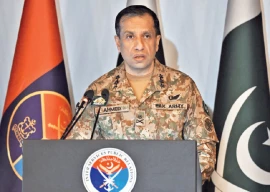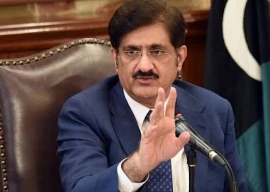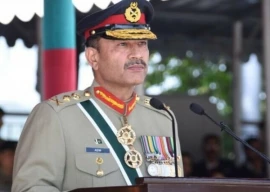
Field Marshal Ayub Khan, Pakistan’s first military president, was the architect of a close relationship with the United States. America then was one of the two superpowers. By concluding two defence agreements with Washington, he distanced his country from the Soviet Union, the other superpower. This was a different line from the one pursued by most other developing nations. India, under Jawaharlal Nehru, had joined other large developing countries to follow what came to be called the ‘non-aligned movement’, or NAM. The NAM countries kept themselves at an equal distance from the two superpowers. Pakistan, along with some nations in the Middle East and Southeast Asia, cast its lot with the United States.
When Zulfikar Ali Bhutto, once Ayub Khan’s foreign minister, questioned this approach, the military leader countered by titling his political autobiography, Friends not Masters. Bhutto had suggested that Pakistan had acquired a ‘master’ by entering into several defence relationships with the United States. The former foreign minister responded by writing his own book under the title of Myth of Independence. The two books appeared after the United States had already walked out of Pakistan. This happened when Islamabad went to war with India in September 1965. Washington responded by cutting military and economic aid to Pakistan. The close relationship engineered by Ayub Khan thus lasted for just over a decade.
The second close alliance between Pakistan and America was also under a military president, this time under General Ziaul Haq. There was clearer quid pro quo this time around. Pakistan agreed to help the United States throw out the Soviet Union from Afghanistan. Moscow had sent its troops into Afghanistan in 1979 when a series of changes in Kabul seemed to threaten its hold over that country. Occupation of Afghanistan by the rival superpower was not acceptable to the United States. Pakistan was a partner in the proxy war fought by Washington that ultimately expelled the Soviet Union from Afghanistan a decade after its troops had entered the country. America lost interest in Pakistan and the region in which it is located once Moscow pulled out its troops.
Deciding that Pakistan was no longer strategically important for the United States, President George HW Bush invoked the Pressler Amendment, which required that Washington would not provide economic or military assistance to a country that was thought to be developing a nuclear arsenal. However, it took almost a decade for relations between Pakistan and the United States to completely rupture. This happened in 1998 when Pakistan exploded a series of nuclear devices in the hills of Balochistan. Pakistan’s explosions followed those by India. Washington was now under President Bill Clinton who, following the nuclear tests, froze all contacts between the two countries. A year later, the American president reacted very negatively to the coup that brought the military back to power in Islamabad. He snubbed Pakistan after a very successful visit to India. He visited Islamabad briefly but refused to shake hands with General Pervez Musharraf, the new military head of the Pakistani state.
America’s stance towards Pakistan changed dramatically after the country was attacked by a group of Islamic extremists on September 11, 2001. George W Bush, the new American president, gave Pakistan a clear warning. Islamabad was told that “either you are with us or you are against us” in the fight against international terrorism. To the surprise of the American administration, Pakistan quickly agreed to the terms laid out by Washington. Later, after leaving office, President Musharraf revealed that Richard Armitage, the then American deputy secretary of state, told the Pakistanis that if they did not cooperate with the United States as the latter set into motion the plans to attack Afghanistan, their country would be bombed back into the Stone Age. This was essentially the reason why Musharraf agreed to work with the United States, offering Pakistan’s air space for American bombers to reach Afghanistan and the use of the country’s road system to supply US and Nato forces operating there. In return, Pakistan’s relationship with the United States was raised to the level only a notch below what Washington had with Nato countries.
Following 9/11, Musharraf, earlier snubbed by the Clinton administration, became a welcome visitor to Washington. He was offered the real privilege to visit the presidential retreat at Camp David in the mountains of Maryland. Pakistan also received generous amounts of military and economic assistance. The amount provided in the 10-year period since September 11, 2011 is estimated at more than $20 billion. Pakistan thus became the second largest recipient of American aid after Israel. However, this amount, on a yearly basis and in real terms, was not more than that given during the period of Ayub Khan. But there was a difference. Washington indicated that this time around it will follow a different approach. Unlike previous associations, when Washington pulled out of Pakistan and the region whenever its strategic interests for involvement were not paramount, it pledged to place the new relationship on firmer ground. This was to be done by embedding assistance to Pakistan in a bill approved by Congress for a period that would last for at least five years. That way the discretion of the executive branch in dealing with Pakistan would become less subject to the whims of those who occupied the White House. A bill was passed and was signed into law in the summer of 2009 by Barack Obama, the newly elected president. However, as I will discuss later, even this time around the relationship did not get out of the roller coaster it had ridden for over half a century.
Published in The Express Tribune, October 31st, 2011.
COMMENTS (13)
Comments are moderated and generally will be posted if they are on-topic and not abusive.
For more information, please see our Comments FAQ
1736938320-0/BeFunky-collage-(52)1736938320-0-405x300.webp)

1736235029-0/diddy-(50)1736235029-0-165x106.webp)
1736930668-0/Untitled-design-(97)1736930668-0-165x106.webp)
1736931444-0/BeFunky-collage-(51)1736931444-0-165x106.webp)
1736941269-0/sidra--(9)1736941269-0-270x192.webp)





1732012115-0/Untitled-design-(14)1732012115-0-270x192.webp)
1736844405-0/Express-Tribune-(2)1736844405-0-270x192.webp)










US has been giving Pakistan all kind of help since its inception,which only Mr Hussain Haqqani, Pak Ambassador to US tells the US audience otherwise unrecognized in Pak like the premier Educational Institution e.g; Lahore Management Univ & Karachi Univ was built by US,Harvard Univ scholars were involved in development planning of Pakistan,Kiwi fruit was brought from US to be grown in Pakistan,US supplied superior fighter jets and tank to Pakistan which helped Pakistan to fight India in 1965.The most important point is that USA provided All military assistance under clear instruction that it should be used against the communist forces not against India and this was the reason US suspended aid to Pakistan during 1965 Indo-Pak war .Author has concealed this fact when he says"This happened when Islamabad went to war with India in September 1965. Washington responded by cutting military and economic aid to Pakistan."
May be this is the last time the roller coaster is rolling. Seems like it will be grounded permanently with pakistan at lower berth and US at top seat.
Third grade officer of bush admisnistration warned Commando Mush and he lays dowm his arms like Niazi did in east pakistan and then he said he will get kashmir????
India was NAM member and at the same time in Russian club member and also send so amny soft ware engineers to united states and when ever member of American club pakistan tried to solved kashmir problm america did not help and allways pakistan get sunction on every thing but not india and in the case of WMD pakistan got problem but india got free hand and in 1998 when india test it weapons america had no problem but when pakistan did it was a big deal why this hypocrisy by partner?? and what kind of friend is this????
"No permanent friends , no permanent enemies but only permanent interests " Winston Churchill. U.S and Pakistan's relationship is akin to any relationship with between two sovereign countries based on mutual interests. Pakistan's relationship with China and US is based on India centric foreign policy to bring in third power to equalize the South Asian field which is tilted heavily towards India because of its size ,economy and military. (Pakistan is equal to single Indian Province of Uttar Pradesh in population and resources ) Pakistan cannot expect that neither US nor China will support it just because it has been a supporter of US/China strategic interests in the past . There are no "all weather relationships" with " friendship as being taller than the Himalayas and deeper than the oceans" Expressions of these sentiments only show naiveté ,deep existential insecurities of Pakistan and failure to realize the realpolitik guiding relationships between the nations. India realized it in 1962 when China invaded India . Prior to 1962, India was consistently in forefront and sponsor of multiple UN resolutions to displace Taiwan with China and was a vociferous supporter of Peoples Republic of China against constant hostility expressed by Western powers.India learned fast about realpolitic after 1962 debacle.Pakistan has not learnt its lessons yet even after 1971 when both China and US looked the other way.
Only equals can be "friends". Non equals can only have a master-servant relationships.
India has been allied with SU for a long time yet US seeks its alliance. Pakistan has been allied with US ever since its existence yet US talks down to Pakistan, which US cannot and will shudder to do with India.
Pakistan has to realize that it is a middle lever power at best. It doesn't even have an economy big enough to be included in the G20.
Friends or Masters, any nation will strive to achieve its own interests only in the short term and in the long term. US is doing its bid and Pak is doing its own for its objectives. Unfortunately they clash many times. Being an economic and technology powerhouse, US bullies its way into Pakistan showing "fistful of dollars". Pakistan in economic troubles or greed of its powerhouses (army and the politicians) or both, do the US's bidding without caring for common man. That is why all these troubles. Lack of quality leadership in Pakistan is the biggest reason for its compliance to US.
An excellent article by Mr. Burki as always. Its true that there have been a lot of ups and downs in Pakistan's relationship with America, from being called the "Allied Ally" to a "Bullied Ally" but I guess even when we were at the height of cooperation and strategic alliance, America was the dictator and it still is. Reason being that even after 64 years,still we, as a nation have not come together as ONE. Not only getting incompetent leaderships has played a havoc but also the inter provincial disputes have led the nation to a chaos and has let superpowers like America to show their usual "aggression" against us. The moment our leadership works to solve internal matters and show the world that we have some self respect and cannot stand any harm to our sovereignty we can surely be Friends and Masters both......
Look forward to the next and subsequent pieces.
Burki Sahib, A lot of details have been missed. The disagreement between Ayub Khan and his foreign minister was more personal in nature and less policy based, though it was given that color. Looking forward for the next essays.